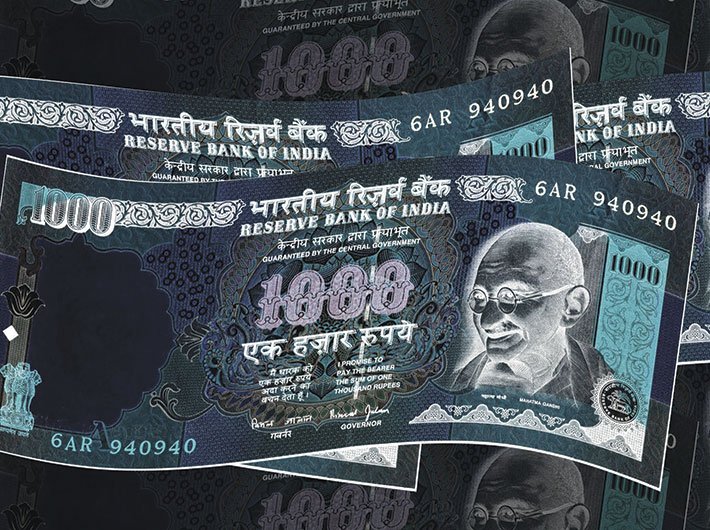Shift in government stance in response to SC rap over selective revealing of names of foreign a/c holders
The recovery of black money stashed abroad had become a hot issue during the elections, with BJP leaders promising to bring it back within 100 days of forming the government. While the Modi government’s position in the supreme court is quite similar to that of the UPA administration, there are indications that the time is right for the government to deliver. There is an international mood to combat money laundering and the financing of terrorism. The Indian government has asked its enforcement agencies to launch a concerted international effort to source information from whistle-blowers to deliver a visible impact.
In May, the new government had created a special investigation team (SIT), headed by former supreme court judge MB Shah. It will brief the apex court on the government’s intentions when the matter comes up at the next hearing. Now there is word the Central Board of Direct Taxes (CBDT), the Enforcement Directorate (ED), Intelligence Bureau (IB), CBI and NIA have been asked to expand the net; to solicit information, using methods similar to those of Julian Assange of the WikiLeaks fame.
Government sources say the new approach is aimed at tapping new and unconventional sources. This shift is the government’s response to a rap on the knuckles for selectively revealing the names of foreign account holders.
Though the government is wary of judicial activism, prime minister Narendra Modi is believed to have instructed all enforcement agencies assisting the SIT to pursue the hoarders and recover the amount in a low-key manner. Modi is said to have told the investigative agencies that their objective ought to be the recovery of black money, whatever its worth.
A problem of quantification
A former governor of the Reserve Bank of India, speaking on the condition of anonymity, told Governance Now: “It is extremely difficult to ascertain the amount of black money present in the economy, given the scale of financial transactions that happen in cash, bypassing all accounting systems.”
The amount of ill-gotten wealth stashed abroad is yet to be ascertained. The illicit outflow of funds from India – and the interest earned on it – for the period 1948-2008 is $462 billion, found the Washington, DC-based thinktank Global Financial Integrity (GFI). In February 2013, the then CBI director AP Singh pegged it higher at $500 billion. In June this year, industry body Assocham estimated the amount at $2 trillion.
Professor Arun Kumar is the head of the centre for economic studies and planning at the Jawaharlal Nehru University and has written a book titled ‘The Black Economy in India’. He says it is “almost impossible” to estimate the amount of black money abroad. Swiss banks are not the only repository of Indian black money, he maintains, pointing to more than 80 tax havens worldwide.
“Only 10 percent of this money is sent abroad, while the rest gets invested within the country,” he told Governance Now.
On factoring the money involved in crime, corruption, illegal trade, smuggling, trafficking, terrorism, counterfeit currency, arms trafficking, misinvoicing of services and other elements, his estimation for the period 1948-2012 of the amount of Indian black money parked abroad and that existing in India together is $1.2 trillion, an amount close to the country’s gross domestic product (GDP).
Given such large sums, the issue became politically sensitive and prompted lawyer and politician Ram Jethmalani to seek the SC’s intervention through a public interest litigation. Subsequently, in July 2011, the court ordered the creation of an SIT. This was, however, formed only after the Modi government took over.
What appears to have become a tiff between the SC and the government is the latter’s insistence on maintaining secrecy about names of foreign account holders, lest it would hamper the investigation.
Perils of full disclosure
The government’s position was that the names could not be revealed as it would violate conditions of the double taxation avoidance agreements (DTAA), that india has signed with almost 85 countries. The government maintained that this will affect bilateral ties and hamper cooperation in sharing names of account holders. The apex court found the government’s argument untenable, directing it to hand over the list of 677 account holders to the court. The court, however, later assured to protect the secrecy of the list and handed it over to the SIT. The government found the court’s conduct quite unusual, because it did not change the ground realities or the progress of the case. Yet it stirred a hornet’s nest regarding India’s position vis-a-vis other countries on the DTAA.
The DTAA argument of the political executive is misleading, say some of the people familiar with the legal and financial aspects of the matter. Lawyer Prashant Bhushan is of the view that disclosing the names of account holders is no infringement of privacy. “If the account holders are genuine, they should not have a problem if their names come out in the open. DTAA doesn’t say that the political executive and the country’s court shall let the illegal money flow outside India under their nose without acting against it,” he says. The government should bring a new law, or an amendment to an existing law (such as the Prevention of Money Laundering Act), that makes it compulsory for every citizen to disclose all their assets and bank accounts in India and abroad, he adds.
Well-known academic R Vaidyanathan agrees DTAA is not a problem. A professor at the Indian Institute of Management in Bangalore, he was part of the BJP’s task force on black money. (It included former Intelligence Bureau chief Ajit Doval, now the national security advisor, chartered accountant S Gurumurthy, and lawyer Mahesh Jethmalani.) “The DTAA argument holds only to the extent that not all account holders abroad have black money stashed there but it is not justified wholly. DTAA specifically says that you can share it with your investigating agency, if required.” However, Vaidyanathan is quite optimistic about the investigation reaching its logical conclusion in view of the international scenario as well as domestic pressure to unearth the black money.
That the government seems determined to push hard on the issue was confirmed by Justice Arijit Pasayat, the vice-chairman of the SIT on black money. He told Governance Now the probe panel will go the whole hog to encourage citizens and foreign nationals to provide specific details about black money via e-mail or post. Needless to say, the informants’ identity will be kept secret.
The story appeared in November 16-30, 2014 issue

